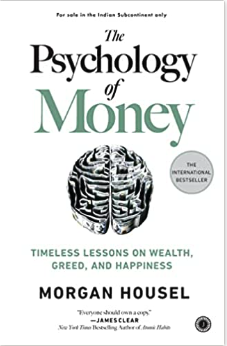Header Outline:
- Introduction: Understanding the psychology of money and why it matters
- The role of behavior in shaping our relationship with money
- Common money biases and how to overcome them
- Building a healthy money mindset for wealth accumulation
- Practical steps for improving your financial habits
- Conclusion: The importance of understanding the psychology of money in achieving financial success
Notes for topic:
- Discuss how our behavior and emotions play a big role in shaping our relationship with money and how this can lead to financial biases
- Identify and explain common money biases and how they can negatively impact our financial decision-making
- Emphasize the importance of developing a healthy money mindset and provide practical tips for building wealth
- Offer actionable advice for improving financial habits and achieving financial success
Title tags:
- “The Psychology of Money: Understanding Our Relationship with Wealth”
- “Money Mindset: How to Overcome Biases and Build Wealth”
- “Financial Success: The Importance of Understanding the Psychology of Money”
Meta descriptions:
- “Discover how our behavior and emotions shape our relationship with money and learn practical tips for building wealth and achieving financial success in Morgan Housel’s “The Psychology of Money”.”
- “Uncover common money biases and learn how to overcome them for better financial decision-making in “The Psychology of Money” by Morgan Housel.”
- “Improve your financial habits and achieve financial success by understanding the psychology of money in Morgan Housel’s “The Psychology of Money”.”
Blog post:
Introduction: Understanding the Psychology of Money and Why it Matters
Money is an essential part of our lives, yet many of us have a complicated relationship with it. Our behavior and emotions play a big role in shaping this relationship and can lead to financial biases that negatively impact our decision-making. In his book, “The Psychology of Money,” Morgan Housel explores the intricacies of our relationship with wealth and offers practical advice for achieving financial success.
The Role of Behavior in Shaping Our Relationship with Money
Housel delves into the various ways our behavior and emotions influence our relationship with money. He explains how our past experiences, upbringing, and societal influences shape our views on wealth and financial success. Understanding these factors is crucial in recognizing and addressing any unconscious biases that may be holding us back.
Common Money Biases and How to Overcome Them
One of the most significant takeaways from “The Psychology of Money” is the identification of common money biases and how they can negatively impact our financial decision-making. Housel discusses the “sunk cost fallacy,” the “status quo bias,” and the “endowment effect,” among others, and provides strategies for overcoming them. By recognizing these biases, we can make more rational and beneficial financial decisions.
Building a Healthy Money Mindset for Wealth Accumulation
Housel emphasizes the importance of developing a healthy money mindset for achieving financial success. He suggests reframing our views on wealth, setting clear financial goals, and understanding the power of compound interest, among other things. By shifting our mindset and adopting positive financial habits, we can build wealth over time.
Practical Steps for Improving Your Financial Habits
In addition to developing a healthy money mindset, Housel offers practical steps for improving our financial habits. He suggests creating a budget, living below your means, and investing early
and often. He also advocates for the importance of financial education and the benefits of seeking professional advice. By implementing these steps and continuously working on improving our financial habits, we can set ourselves on a path towards financial success.
Conclusion: The Importance of Understanding the Psychology of Money in Achieving Financial Success
Overall, “The Psychology of Money” offers valuable insights into the complexities of our relationship with wealth and the role of behavior and emotions in shaping it. By understanding these intricacies and recognizing common money biases, we can make better financial decisions and improve our chances of achieving financial success. Through developing a healthy money mindset and implementing practical steps for improving financial habits, we can set ourselves on the path towards wealth accumulation. By reading this book, we can gain a deeper understanding of the psychology of money and use it to our advantage.
